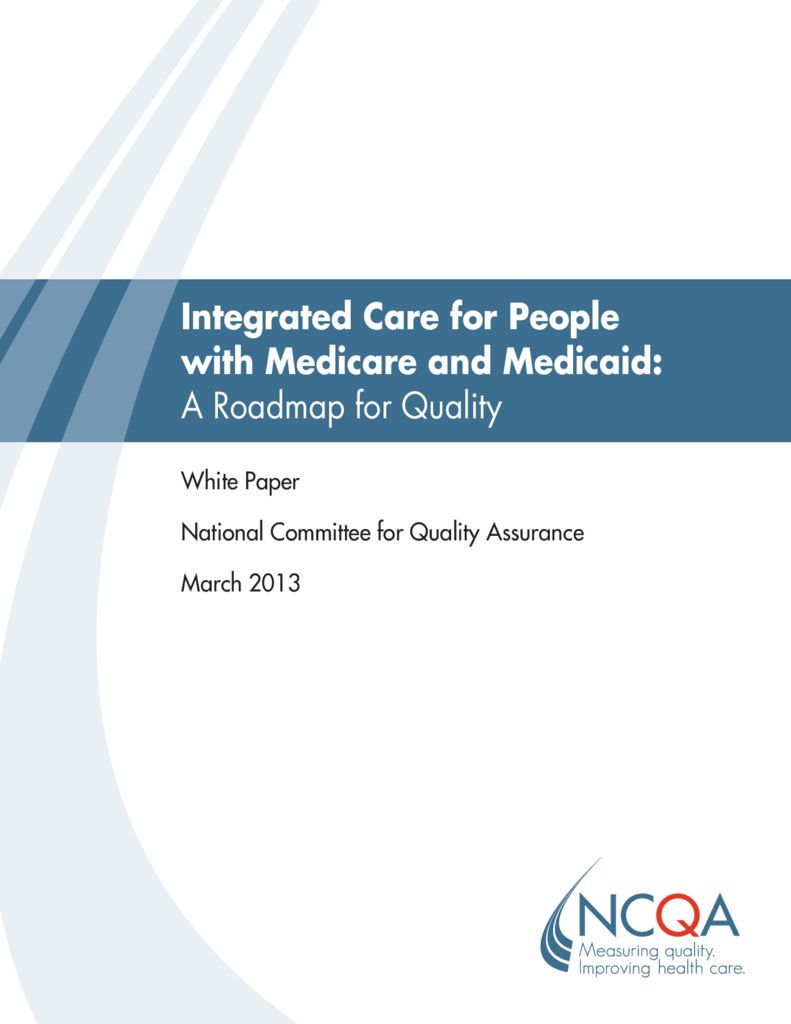summary
In this paper, the National Committee for Quality Assurance (NCQA) discusses prior integration efforts; introduces a model for integrated entities and a framework for assessing and promoting quality of integrated care; and explores the challenges to implementing and achieving the goals of person-centered, integrated care for Medicare-Medicaid beneficiaries. They use the word “framework” to describe the key concepts underlying the structure and process measures; it can also be expanded to include the content of performance measures as companions to the structure and process measures.
Date Updated: 03/15/2013The lack of coordination between Medicare and Medicaid for people who have coverage in both programs is well-documented, and these individuals incur high levels of spending in both programs. Because of the complexities of different coverage and program administration requirements, states have found it challenging to work with plans and providers to create programs that provide the full range of services that people with Medicare and Medicaid need…
Continue Reading
The California Medicaid Research Institute (CAMRI) developed an integrated and longitudinal database containing Medi-Cal and Medicare claims and assessment data of LTSS recipients in California in 2008. CAMRI’s integrated database provides a unique opportunity to look at characteristics and program spending across the entire care continuum for beneficiaries with LTSS needs within Medi-Cal and for dual eligibles across Medicare and Medi-Cal. This report focuses on LTSS use and spending in the eight duals demonstration counties.
Following on previous reports describing the population who uses Medi-Cal-funded long-term services and supports, the California Medicaid Research Institute has produced a report that describes key characteristics of the population using LTSS across each of the state’s 58 counties. This report describes spending and service use patterns across the 58 counties.
A white paper and series of briefs from Avalere Health produced with support from The SCAN Foundation explore the use of non-medical data to better coordinate care for high risk Medicare beneficiaries, which can lead to improvements in care while providing health plans a return on investment.


